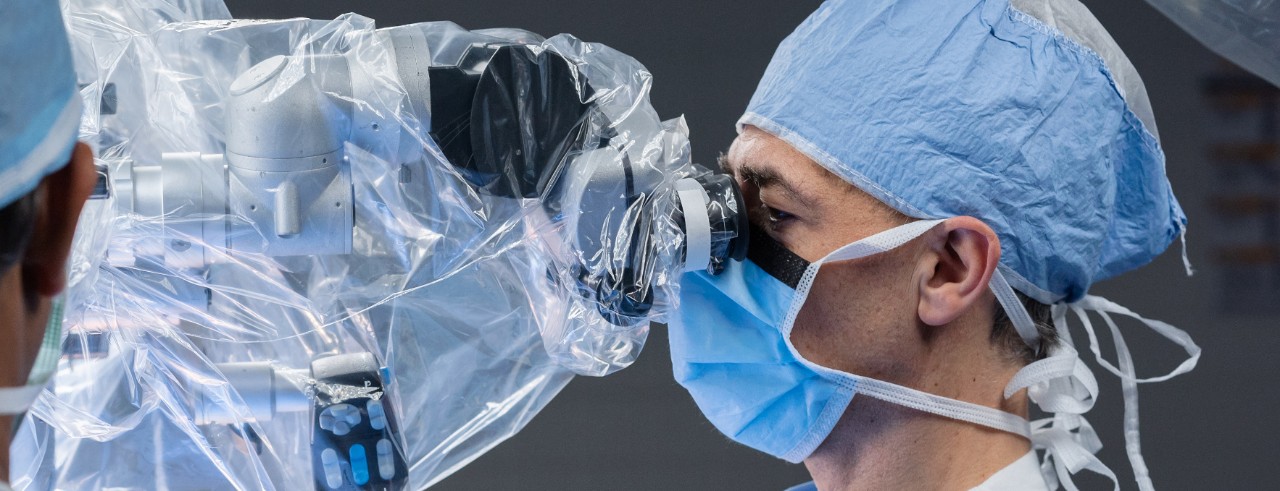
UC neurosurgeon developing software to guide surgeons in the operating room
Norberto Andaluz, MD, awarded for research that will improve surgical technique
The North American Skull Base Society recognized the work of Dr. Norberto Andaluz during its annual conference, this year held virtually.
The abstract entitled, "Piriform Height and The Clival Length as Predictors of the Size and Surgical Freedom of the TransClival Corridor," received the Rhoton Award, named after Albert Rhoton Jr., a pioneer in the field of neuroanatomy.
This abstract is a small portion of a much larger project that is using data and computer technology to guide surgeons to the best area to operate. "Many of us who have done this for quite some time have developed our own method to do that," explains Dr. Andaluz. "We kind of guestimate and measure to our eye to figure out the best window to approach a lesion. But this is using concrete data and is a method that is reproducible and transferable." He compares it to asking his mom for one of her well-used recipes: she may know how to do it, but she can't exactly articulate it. "We're trying to convert that feeling into a predictable paradigm that can be used consistently and can be reproduced by others," says Dr. Andaluz.
We're trying to develop an easy-to-use, open source or commercially-available software platforms that are already in use that we will use to review patient films to predict the best surgical windows.
Norberto Andaluz, MD
For the project, University of Louisville resident Dr. Zaid Aljuboori led researchers to take thousands of measures on more than 100 CAT scans over the course of a year. The goal, according to Dr. Andaluz is, "We're trying to develop an easy-to-use, open source or commercially-available software that we will use to review patient films to predict the best surgical windows."
Dr. Andaluz predicts it will be industry-standard for surgeons to use software in surgical planning in the near future.
The Goodyear Lab at the University of Cincinnati will be one of the sites where these preliminary results will be validated on cadaver models.
Related Stories
Pediatrician celebrates 30th UC College of Medicine reunion with...
April 3, 2025
There’s a vital thread woven into the fabric of Chris Peltier’s life. It’s black and red, and it knits all things Bearcat together into a life that was transformed by the University of Cincinnati and the UC College of Medicine.
Hands-on experiences, real-world impact
April 3, 2025
University of Cincinnati second-year medical sciences student Jay Patel is pursuing his passions as founder of the Dahyabhai Foundation, a cancer researcher and a Portman Fellow.
UC Honors students gain hands-on research experience
April 1, 2025
The Biomedical Research and Mentoring Program is open to any University Honors Program students. The faculty mentors are typically from UC’s College of Medicine or Cincinnati Children's Hospital.
